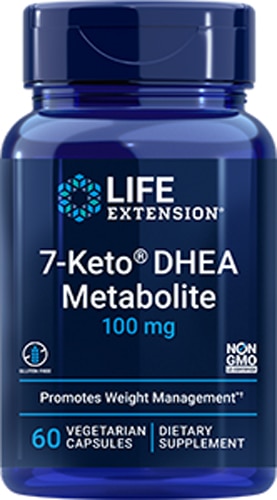The keto diet advertises itself as a weight loss wonder, attracting many to its promise of butter coffee—butter everything, in fact—along with unlimited amounts of meat, which goes over especially well with the die-hard bacon crowd.
What is keto, anyway?
Ketosis is a metabolic adaptation that allows the body to survive in a period of famine. Your body breaks down ketone bodies, a type of fuel the liver produces from fat, instead of sugar or glucose from carbohydrates. The goal of the ketogenic diet is to enter a state of ketosis through metabolizing fat. In a ketogenic state, the body uses primarily fat for energy instead of carbohydrates; with low levels of carbohydrate, fats can be converted into ketones to fuel the body. Your liver burns fat as it makes ketones, helping you lose weight.
The diet is widely hailed for melting away pounds, burning more calories, reducing hunger, managing diabetes, treating drug resistant epilepsy, improving blood pressure and lowering cholesterol, and increasing focus.
The ketogenic diet, long used to treat epilepsy in children, typically calls for roughly 75 percent of daily calories to come from fat, compared to 20-35 percent normally recommended. Keto eschews carbs in favor of moderate protein and extreme amounts of fat.
According to the American Epilepsy Society, the amount of protein or carbs can vary as long as it’s 4 grams of fat for every combined 1 gram of carb and protein. This means there will be a lot of cheese, butter, eggs, nuts, salmon, bacon, meat, olive oil and non-starchy vegetables such as broccoli, cauliflower, greens and spinach.
While fat is mostly what you eat, it requires 5 percent of calories from carbohydrates, about 20-50 grams per day, and 15 percent of calories from protein. Ketosis kicks in after 72 hours, and to maintain it, strict adherence to the protocol is mandatory.
The keto struggle is real
This year, yet again, keto pulled way ahead of the pack of popular diets—a recent survey of registered dietitians named keto as the most popular diet in the United States—but considerable challenges can hinder its effectiveness. If you do find yourself struggling with some of the most common keto conundrums, here are five key ways to fine tune your diet.
1. Weight loss has tapered
According to a study review published in the Journal of Clinical Lipidology, while the diet has a dramatic effect in the first 12 months, after that the effectiveness tapers off. After the one-year mark, weight loss seems to equalize between keto type diets and more traditional high-carbohydrate, low-fat diets.
Try: If you feel like you have reached a keto plateau, you could experiment with intermittent fasting to reboot your metabolism. One fasting method is to give yourself an 8-hour window of when you can consume food, followed with 16 hours of fasting a day.
2. Unhealthy cholesterol levels
Keto encourages copious amounts of fat, stirring heated debate. While some fats are better for you than others, many health experts suggest you keep saturated fats to no more than 7 percent of your daily calories because of the link to heart disease.
Try: Aim to include anti-inflammatory omega-3s, particularly EPA and DHA, the type that are found in salmon, sardines, oysters, herring, and mussels, as well as healthy fats such as avocado, olive oil, and seeds like chia seeds and flaxseed.
3. Lack of variety
Since keto restricts fresh fruits and vegetables, whole grains and low-fat dairy, you may miss out on certain nutrients that can help with long term weight loss and overall health. The lack of variety of vegetables, fruits and grains, can out you at risk for deficiencies in micronutrients, including selenium, magnesium, phosphorus, and vitamins B and C.
Try: Incorporate as wide a range of protein, fats, vegetables and fruits as the protocol allows.
4. Kidney overload
The kidneys help metabolize protein and the increased amount of protein on the keto diet may overstress them. Many people forget to drink enough water on keto. One study published in the Journal of Child Neurology found that among children following the keto diet as a treatment for epilepsy, 13 out of 195 subjects developed kidney stones.
Try: Up you water intake. Drinking extra water not only prevents dehydration but can dilute the substances in urine that lead to kidney stones.
5. Prep for GI distress
As your body becomes accustomed to the shock of keto’s extremity, there might be some initial repercussions, such as diarrhea and other forms of gastric distress. There’s nothing wrong with you or the diet—it’s just the nature of the transition to a low-carb diet. When your body first starts adapting to ketosis, it dramatically increases urination (you lose a lot of water). This combined with the severe restriction of carbohydrates can bring on the “keto flu”—symptoms such as dizziness, bad breath, headaches, poor sleep and fatigue.
Try: In the beginning, focus on foods rich in potassium, magnesium foods, and sodium to replenish electrolyte balance.




